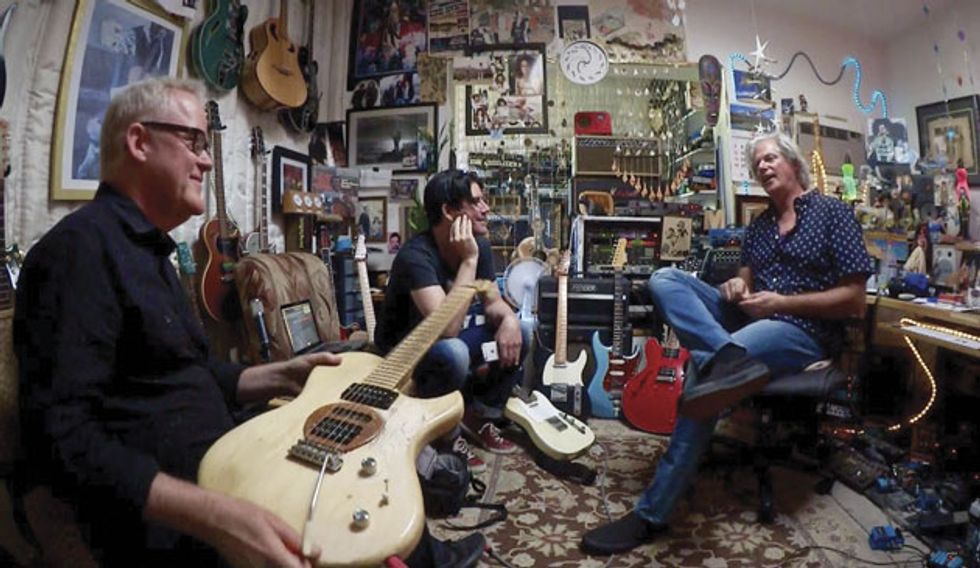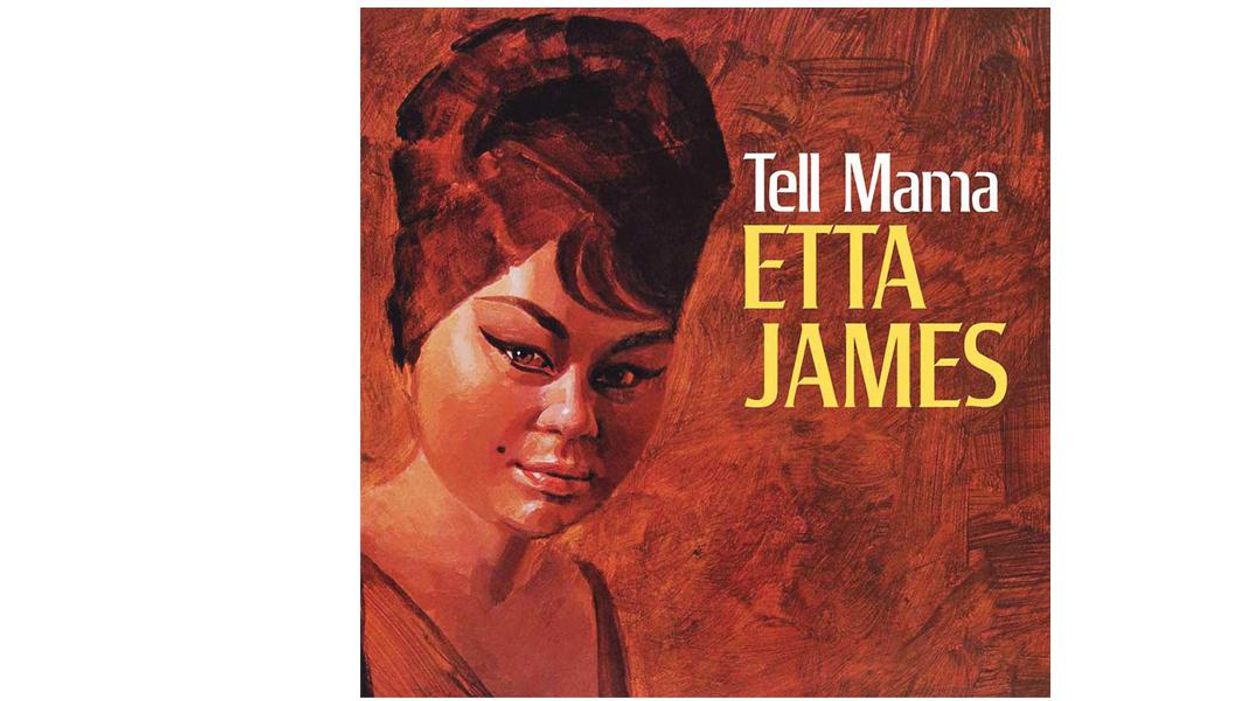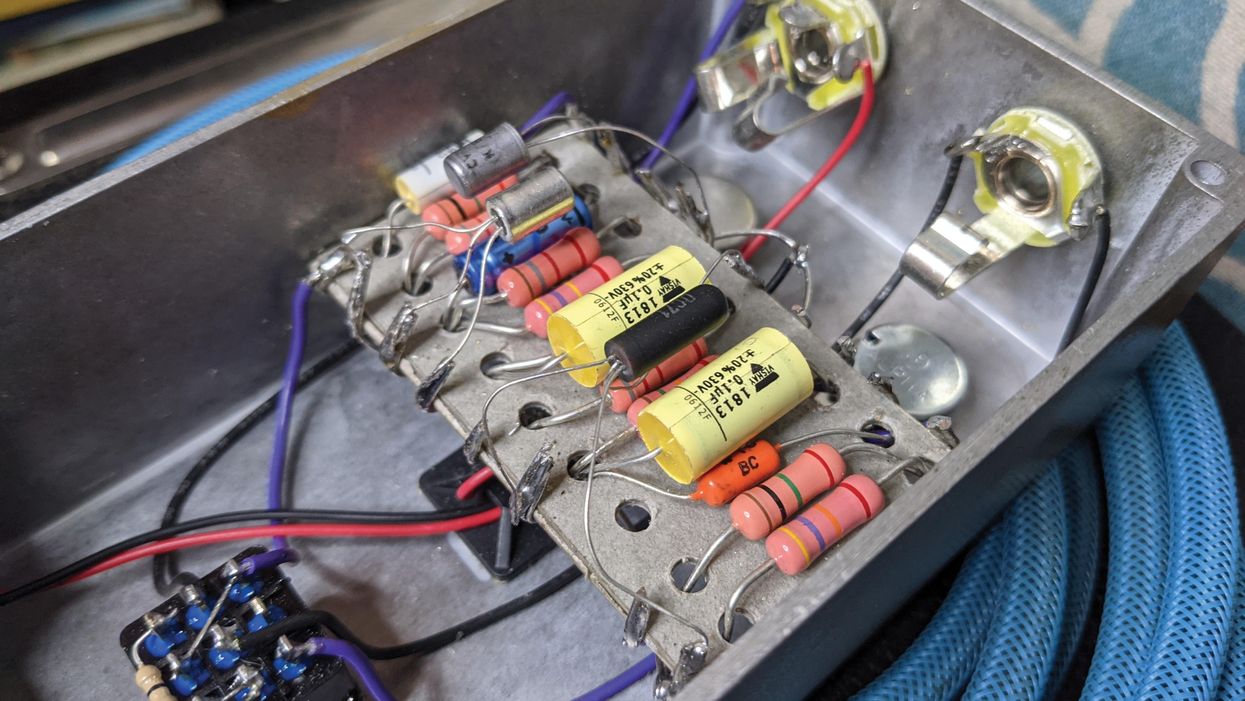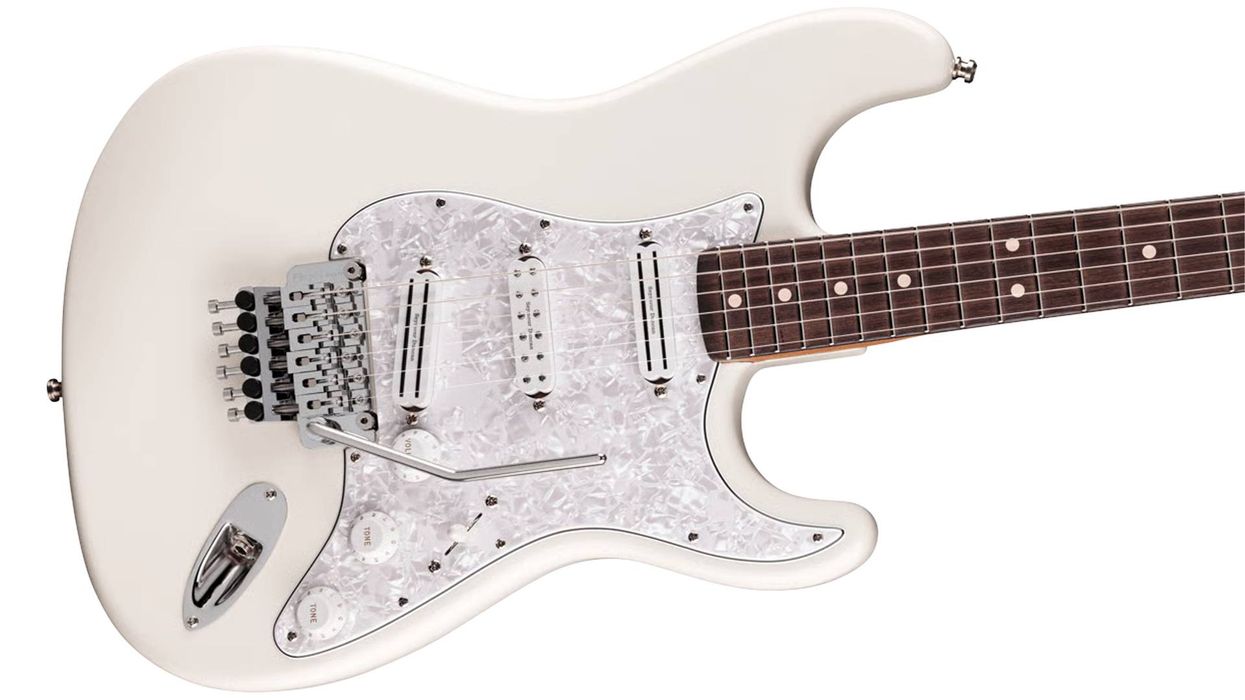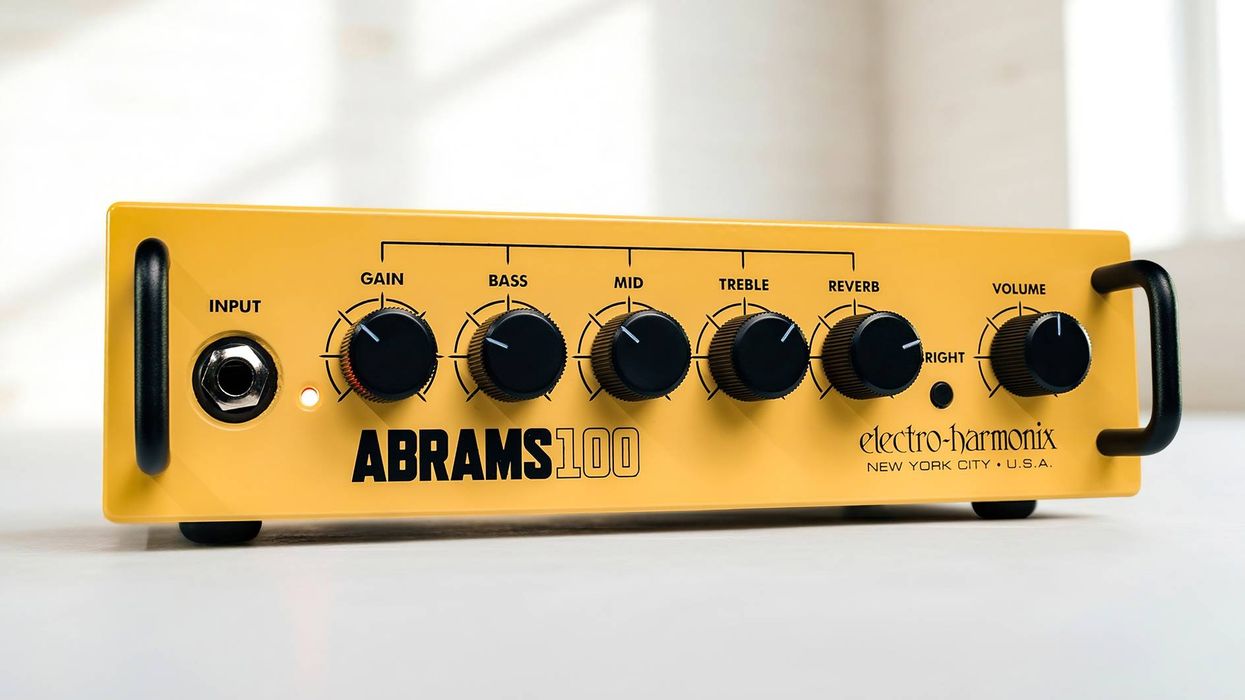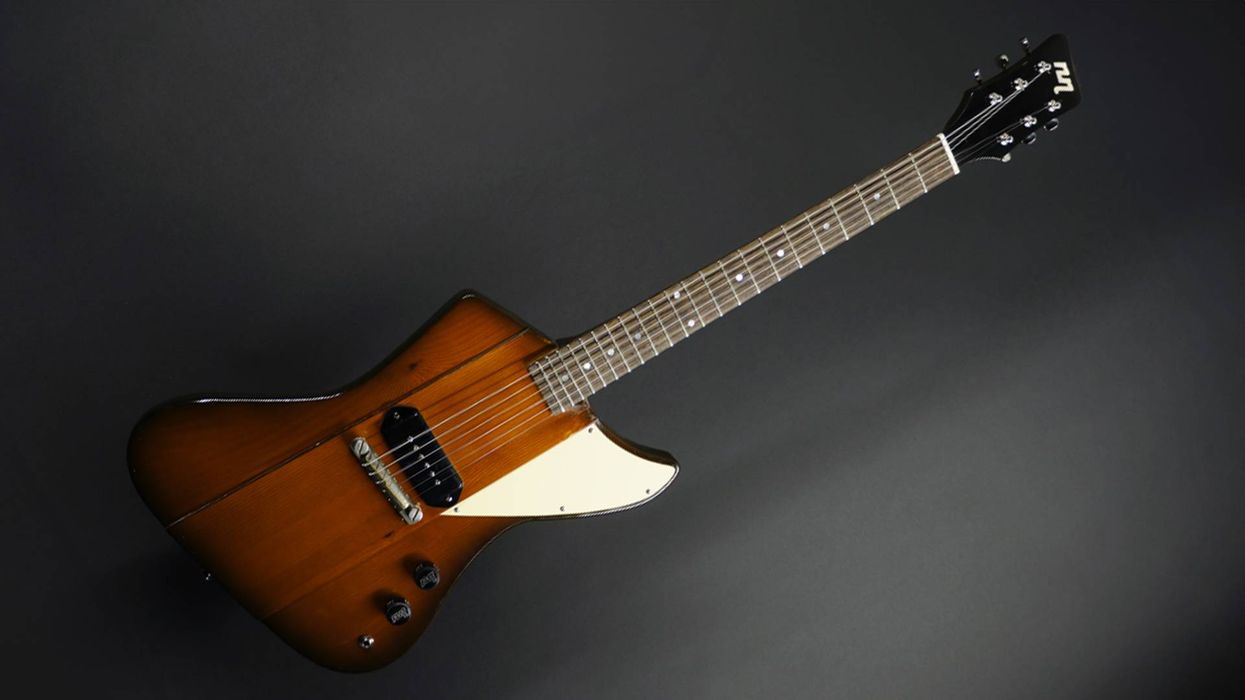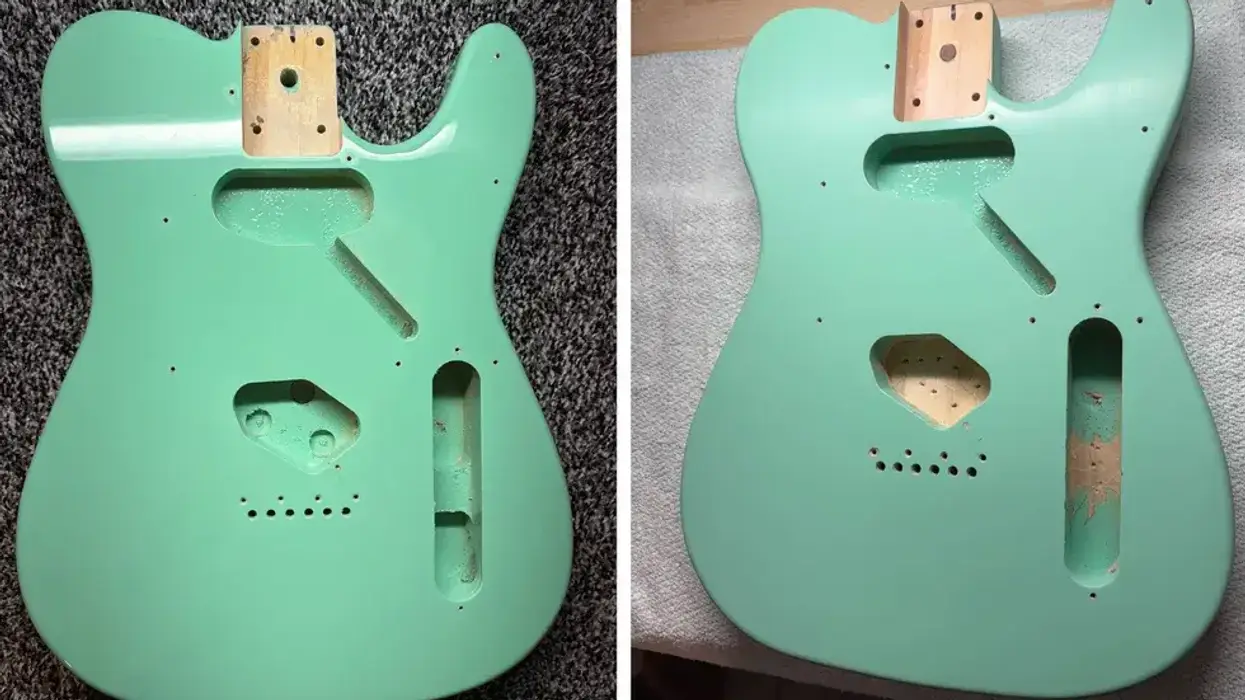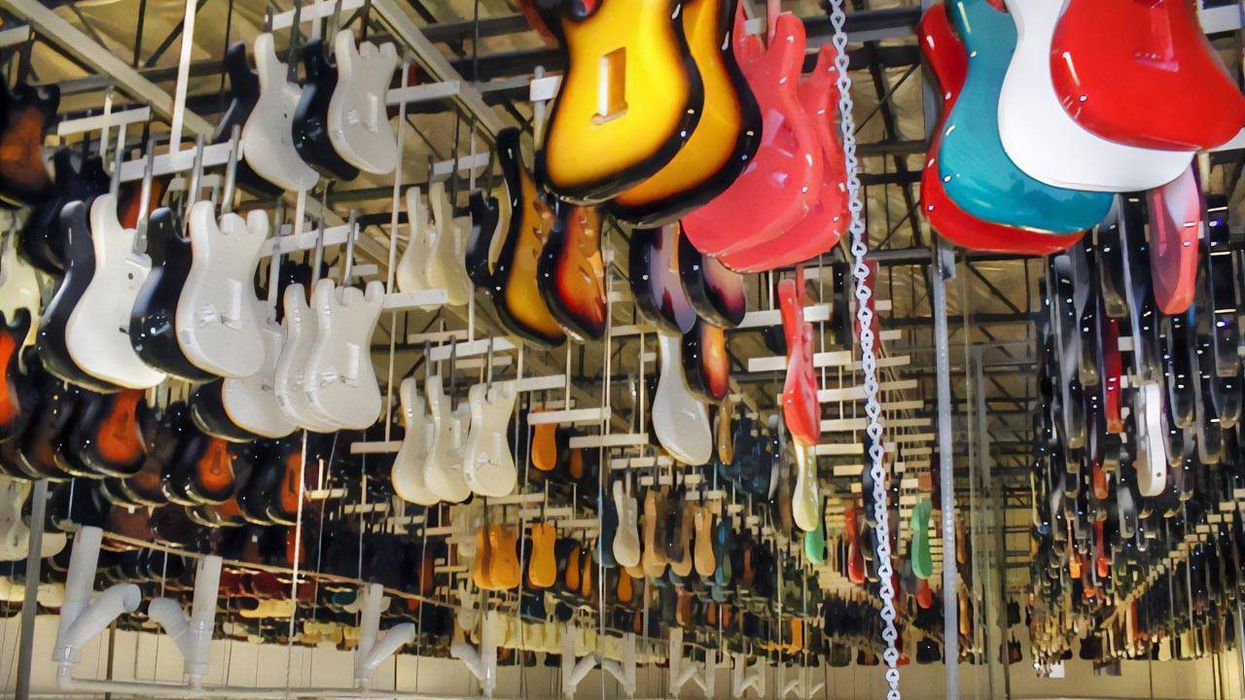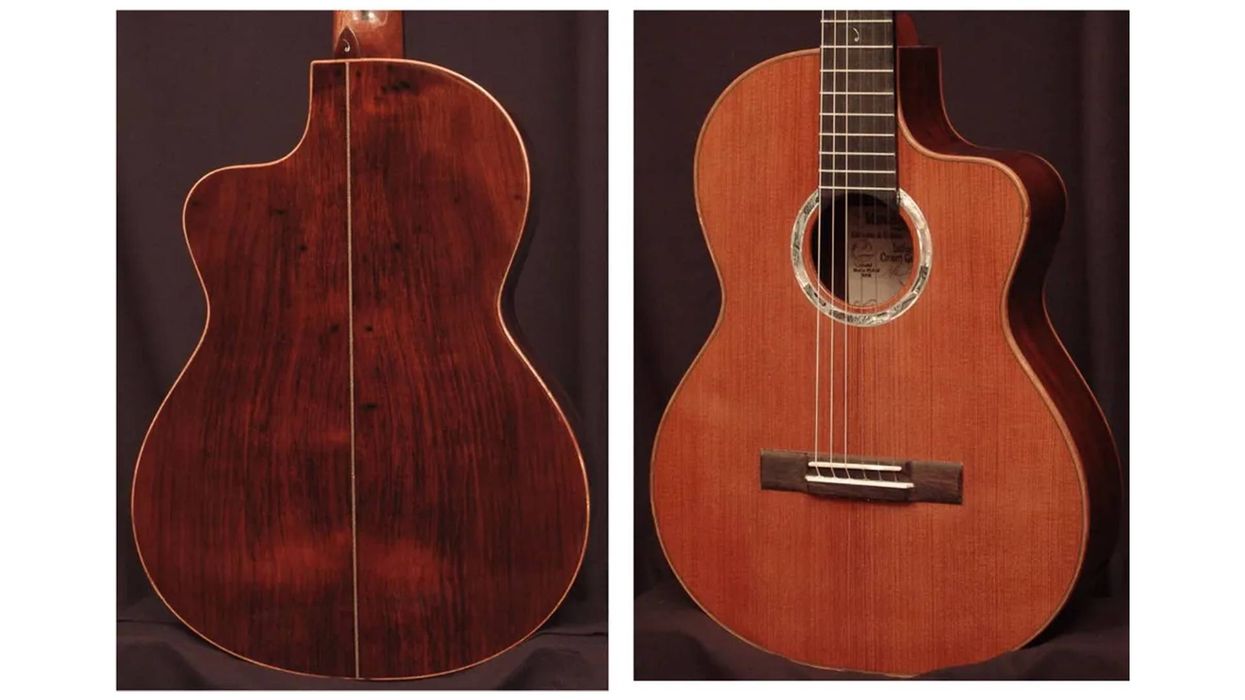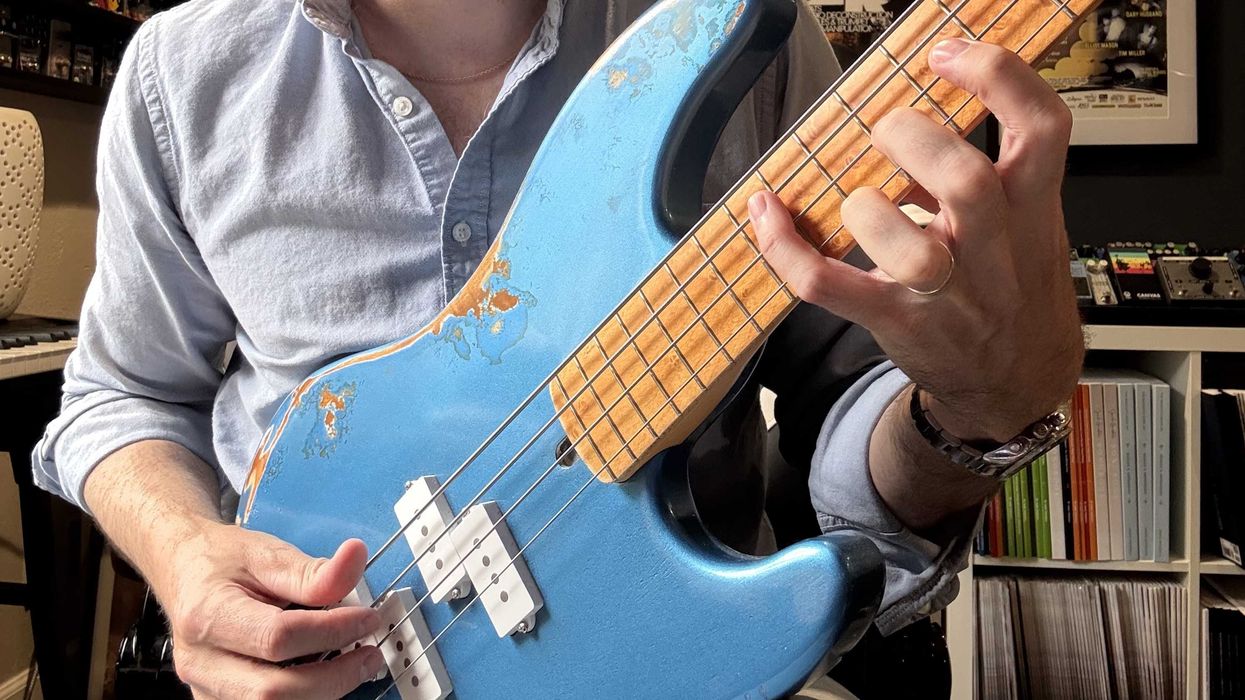Your humble author hanging with L.A. session legends Tim Pierce and Michael Thompson while sharing stories about our respective times coming up as guitarists in Los Angeles.
I recently had a telephone conversation with a friend who is a talented, young singer/songwriter/guitarist. She lives outside of the U.S. and has been noticing that she's receiving more attention on social media for her guitar playing skills than for her songs or singing. My friend wanted my advice about whether a career as a session and touring guitarist would be a good thing for her to pursue. I gave her an enthusiastic “yes," but with one caveat. I recommended that she move to a major music center such as Los Angeles or Nashville, since these are the places where the major tours are put together and where sessions happen. Still, she responded with some apprehension and wondered why people couldn't just scout her online. In this month's column, I'll detail why making the sacrifices and commitment for a move to a music capital is the way to go if you want a career as a pro musician.
Woody Allen was right. I've mentioned in previous columns that if you want to make a go at a full-time career as a professional musician, you must have an almost obsessive passion for your instrument and music in general. You also have to be physically present. Even with the Internet and its ability to bring us all closer, you need to actually be there to do sessions and audition for gigs. And in order to get those calls for touring gig auditions and recording sessions, you generally have to be a part of a music scene, which requires a considerable amount of networking and beating the street. Like Woody Allen said, “80 percent of success is showing up."
Case in point: Late one evening in February 2007, I received an email from a colleague alerting me to be at Center Staging the following day if I wanted to audition for Chris Cornell's touring band. I was given a list of five songs, so I woodshedded furiously for a few hours, got some sleep, and woke up early to go over them all again. I played well at my noon audition and got a callback audition that eventually led to being offered the gig. There's no way any of this would have happened had I not been physically present in L.A. for some time, because I needed to build the relationship that led to me getting a call to audition. Just as important, living in L.A. gave me the ability to audition at a moment's notice.
Success, hardship, and commitment. My good pal Tim Pierce and I recently stopped by session-great Michael Thompson's studio to interview him for an upcoming episode of our web series, Tim and Pete's Guitar Show. And he shared some incredible stories about his early days in L.A. Though Michael got his start as a working musician in the late '70s in Boston, Massachusetts—where he found enough paying gigs to avoid working a day job—he knew L.A. was where the real top-quality gigs were and relocated to California in 1979.
A mutual friend of Michael's from Boston had scored a gig in Joe Cocker's touring band, so Michael asked his friend to try to get him an audition. He got the gig (within one week of moving to L.A.), but the job didn't last long and he was soon looking for another one—which didn't materialize. Funds ran low. Michael had to look at the help-wanted ads for the first time in his life, and he spent the next year driving a taxi to make ends meet. He never forgot those lean days where his hunger and desire to succeed was so strong that he poured all he had into every single session he did get. Michael always brought his full amp, FX rig, and multiple instruments to sessions no matter what or who it was for, and he was always working hard to come up with unique parts and tones. Word spread, and through a combination of drive and talent, he became a first-call session musician.
I clearly remember the lean times during my early days in L.A. I took whatever gigs I could get and often played for free to gain experience and make connections. I taught lessons when I could and worked jobs for minimum wage. I remember rolling my spare change—mostly pennies and nickels—and taking the rolls to the bank for a few bucks to help pay rent. I remember living for an entire week on $13 by existing on bread, peanut butter, tuna fish, and mayo. I just barely got by, but continued to take every gig that came my way. When I did start to get calls for auditions and occasional sessions, I poured everything I had into trying to be the best. My philosophy was/is simple: All I have to do is be the best guy that shows up for the gig, and I'll get it.
Even in this age of social media and devices that keep us connected 24/7, there is still no substitute for showing up, literally and figuratively. Sure, it's a sacrifice to move to a major music center, but nothing good ever comes easy. If you do come to L.A., just don't take my gigs!
Until next month, I wish you good tone ...

